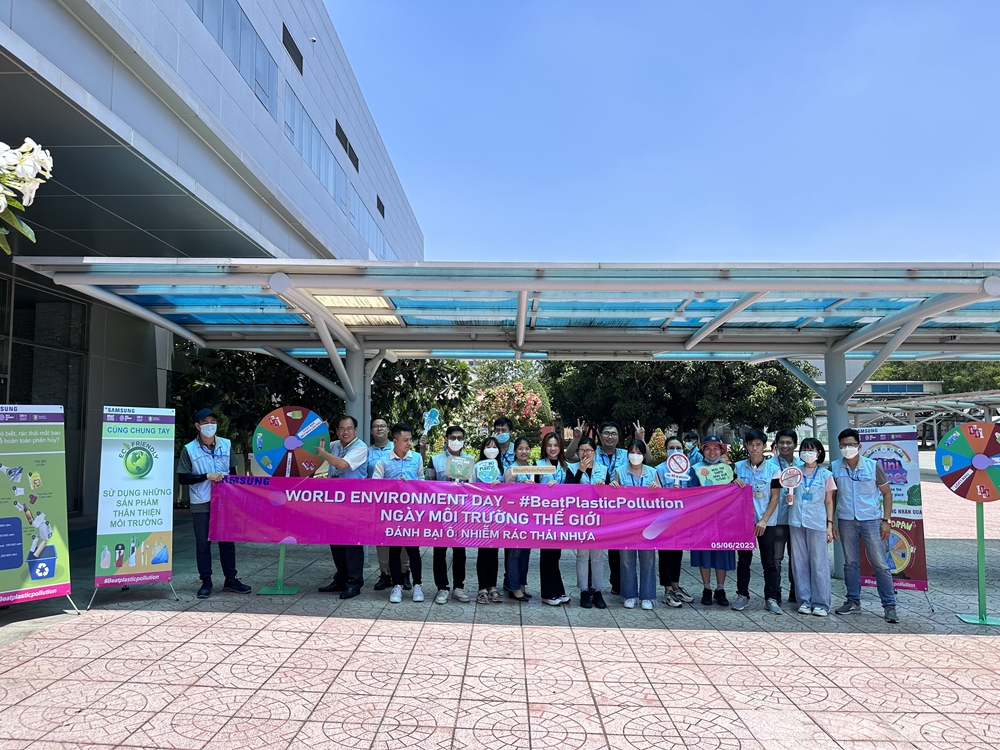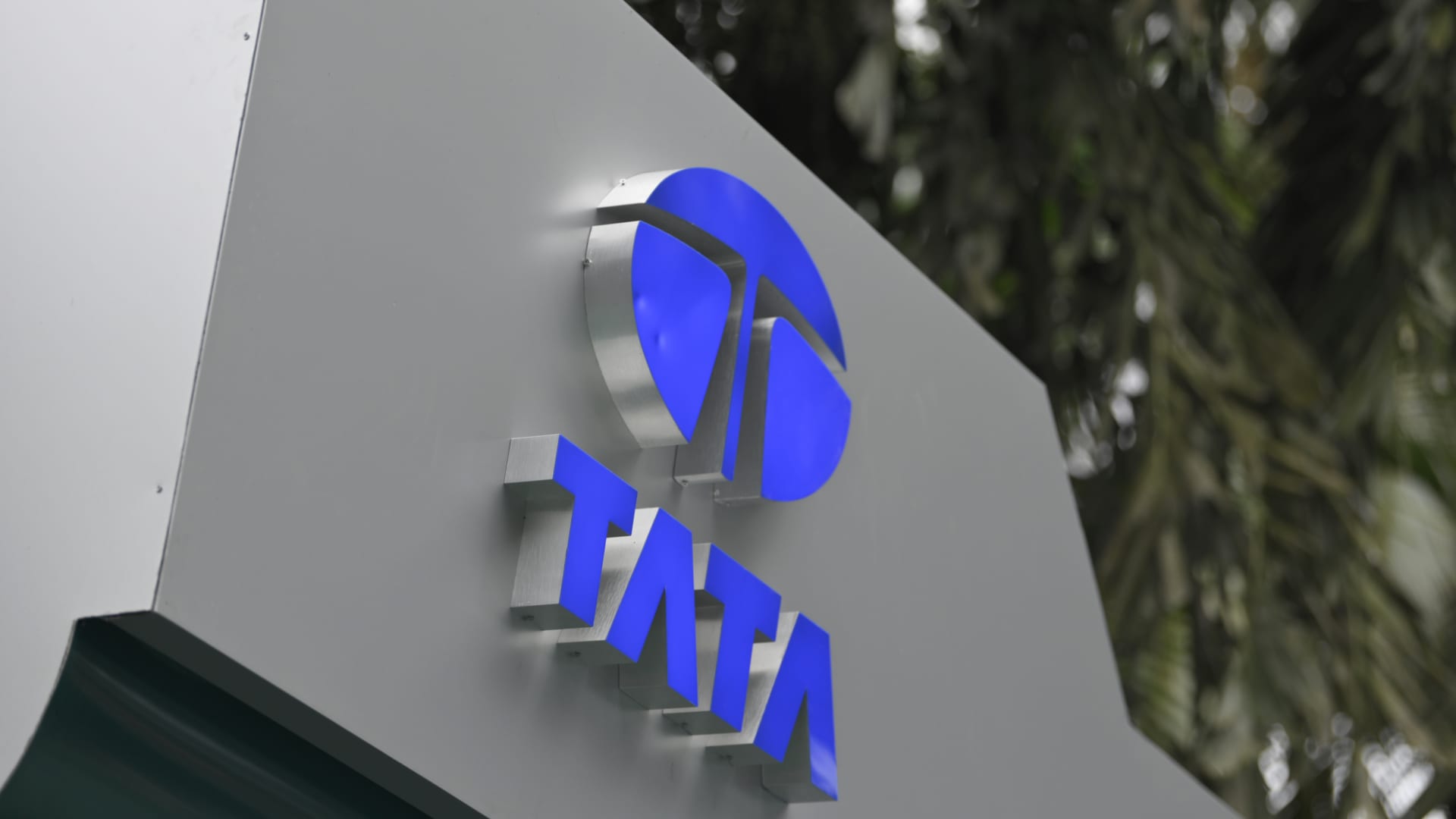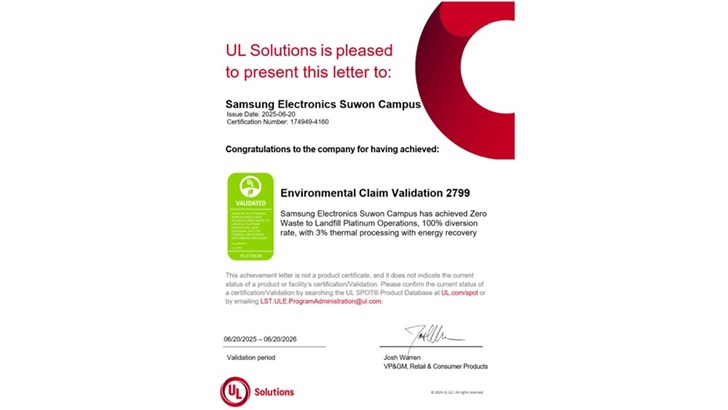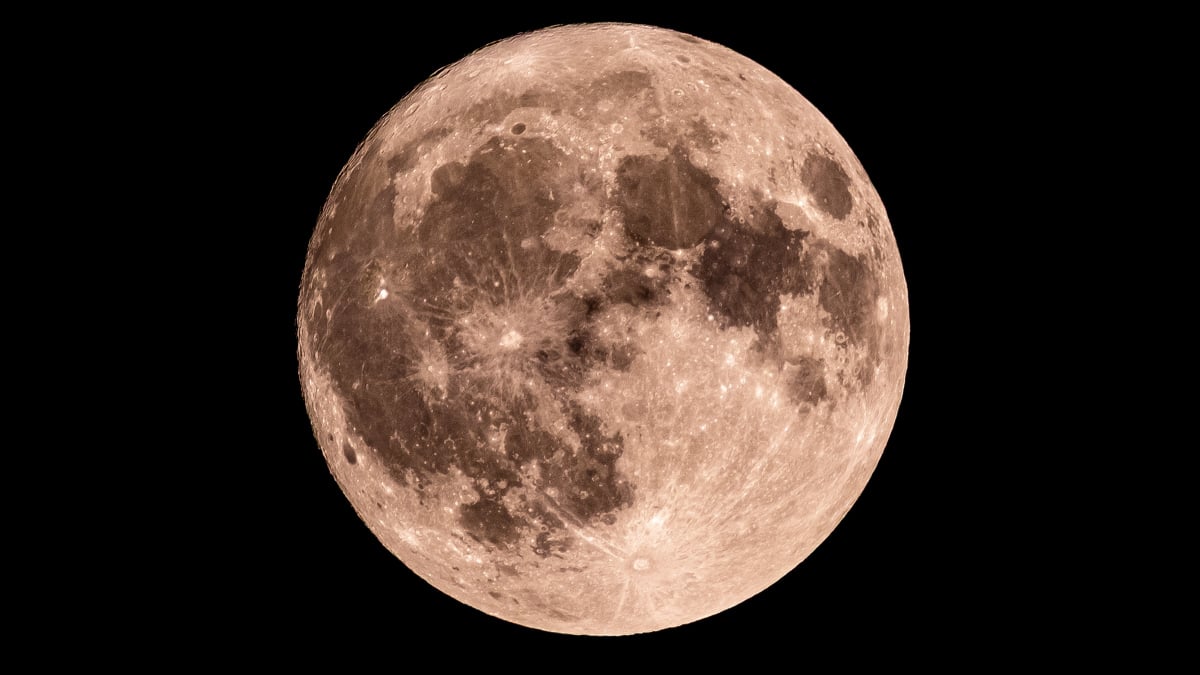Samsung Electronics has achieved UL Solutions’ “Zero Waste to Landfill” Platinum designation across all of its global manufacturing sites — marking the first major milestone in the company’s environmental strategy.
“Zero Waste to Landfill” is a claim validation program administered by UL Solutions, a global safety science company. Designations are determined by the percentage of waste diverted from landfills, serving as a key indicator of a company’s resource circularity efforts. Platinum represents a 100% landfill diversion rate, while Gold and Silver represent 95% to 99% and 90% to 94% respectively.
Since announcing its Environmental Strategy in 2022, focused on climate action and resource circularity, Samsung has steadily advanced sustainable management practices — repurposing waste generated at its sites into valuable resources and expanding other recycling initiatives worldwide.
Last year, all 10 business sites of the Device Solutions (DS) Division earned Platinum designation through integrated validation. This year in July, the Device eXperience (DX) Division’s Hungarian subsidiary, SEH-P, also achieved Platinum, marking the final step in securing Platinum status across all 22 domestic and overseas DX manufacturing sites.
▲ “Zero Waste to Landfill” Platinum designation for Samsung’s headquarters in Suwon, issued by UL Solutions
Samsung Electronics has established key directions for waste management — strengthening sorting systems, expanding reuse and increasing resource recovery — and has been implementing them through concrete initiatives.
Examples include introducing more refined waste separation systems within worksites and strengthening employee training to ensure thorough sorting.1 Food waste and used paper are composted,2 while general and construction waste is recycled into alternative fuels3 or basic raw materials.4 In addition, e-waste and battery residues are repurposed for solid fuel production.5 Through these efforts, Samsung has made steady progress toward its goal of achieving Zero Waste to Landfill.

▲ Plastic waste reduction training at Samsung Electronics’ SEHC subsidiary in Vietnam
Samsung is continuously developing technologies to recycle waste generated from semiconductor production processes into materials that can be reused in semiconductor manufacturing. For example, waste liquids are reused as a cleaning agent in scrubbers that reduce air pollutants and as water treatment agents in wastewater treatment facilities. In addition, adsorbents, activated carbon and catalysts used to control air pollutants undergo regeneration and are reused as raw materials for the same applications.

▲ Waste adsorbent regeneration process
Samsung recycled approximately 1.32 million tonnes of waste in 2024 — equivalent to 260,000 five-tonne waste trucks.
In addition to reducing waste at its worksites, Samsung has also repurposed by-products and discarded materials into new resources. The Galaxy S25, launched this year, has incorporated recycled cobalt extracted from previously used Galaxy smartphones and batteries discarded during the manufacturing process through Samsung’s Circular Battery Supply Chain. Discarded wafer trays from semiconductor manufacturing were recycled and applied to the Galaxy S25 series’ components as well.
Looking ahead, Samsung Electronics plans to further enhance systematic waste sorting and material-specific management to secure high-quality recycled resources and expand their application in products, strengthening its commitment to resource circularity.
Junhwa Lee, Executive Vice President and Head of Global EHS Office, DX Division at Samsung Electronics, highlighted the significance of the achievement as “a major milestone” in the company’s environmental management strategy, adding that the company will continue to apply innovation across all areas of its business to put sustainable management into practice.
More information on Samsung Electronics’ sustainability initiatives can be found on the Samsung Electronics Sustainability website.
1 Subsidiaries in Hungary (SEH-P), Malaysia (SEMA), Brazil (SEDA-P(M)), Türkiye (SETK-P), etc.
2 Subsidiaries in Thailand (TSE-P), India (SIEL-P(C)), Malaysia (SEMA), Mexico (SEM-P), etc.
3 Subsidiaries in Vietnam (SEHC), Malaysia (SEMA), the United States (SEHA), etc.
4 Subsidiaries in Vietnam (SEV, SEVT), etc.
5 Subsidiary in Indonesia (SEIN-P)







